“There are a lot of obstacles to overcoming depression" - don't you agree?
As we at The Depression Project so often hear from members of our 3,000,000+ person social media community, there are a lot of obstacles to overcoming depression, including:
- “Therapy and counselling being too expensive."
- “Having to wait weeks and weeks to see a therapist.”
- “Lack of motivation.”
Now, if you're like many people with depression, then at least one (or perhaps all) of these obstacles apply to you - which means that right now, you aren't receiving enough help to overcome depression.
And, this is a big, big problem, because when you don't get the help you need to overcome depression, then, according to members of our community:
- At Best: You learn how to cope with your depression on a day-to-day basis, but you never actually overcome it - which means that even though you have some good days, your depression still always hangs over you, and is something you'll have to continue fighting for the rest of your life.
- At Worst: Your negative thoughts become more and more dark, uncontrollable and torturous. Your self-esteem withers and withers until you feel completely worthless. Your ability to function diminishes and diminishes to the point where you can no longer work, leave the house or even get out of bed. You become increasingly isolated from your friends and family until you're all alone. All meaning disappears from your life, and you're left with nothing but depression.
However, at The Depression Project, we dream of a much better world for people with depression – and for this reason, we built the Depression Bootcamps Membership Platform: in order to help remove these obstacles to overcoming depression!
Grounded in leading, evidence-based principles from cognitive behavioural therapy (including specialised forms of CBT such as DBT and ACT), the Depression Bootcamps Membership Platform helps remove the obstacles to overcoming depression by:
Firstly, Making High Quality, Professional Help Much, Much, MUCH More Accessible!
This is because for a very affordable price, you’ll receive access to a wide variety of different cognitive behavioural therapy-based Bootcamps that will arm you with the direction, clarity, insight and the strategies you need to know in order to fight back against depression and ultimately overcome it.
Secondly, the Depression Bootcamps Membership Platform Makes Learning How To Overcome Depression As Easy And Convenient As Possible - Which Can Help You Overcome Lack Of Motivation
After all, each of the Depression Bootcamps can be accessed anytime you want them, anywhere you want them, and from any device you want (such as a computer, tablet or smartphone).
Not only that, but Depression Bootcamp Members are also frequently emailed words of support and encouragement, as well as bite-sized, easy-to-digest CBT strategies to overcome depression that can be read in 5 minutes or less.
As we hope you're beginning to see, the Depression Bootcamps Membership Platform really can help to remove the obstacles that are currently preventing you from overcoming depression – which can result in you gradually getting better, beating this illness over time, and going on to live the life you want!
Let’s Now Get More Specific: Here’s Exactly What You’ll Get Access To By Becoming A Depression Bootcamps Member!
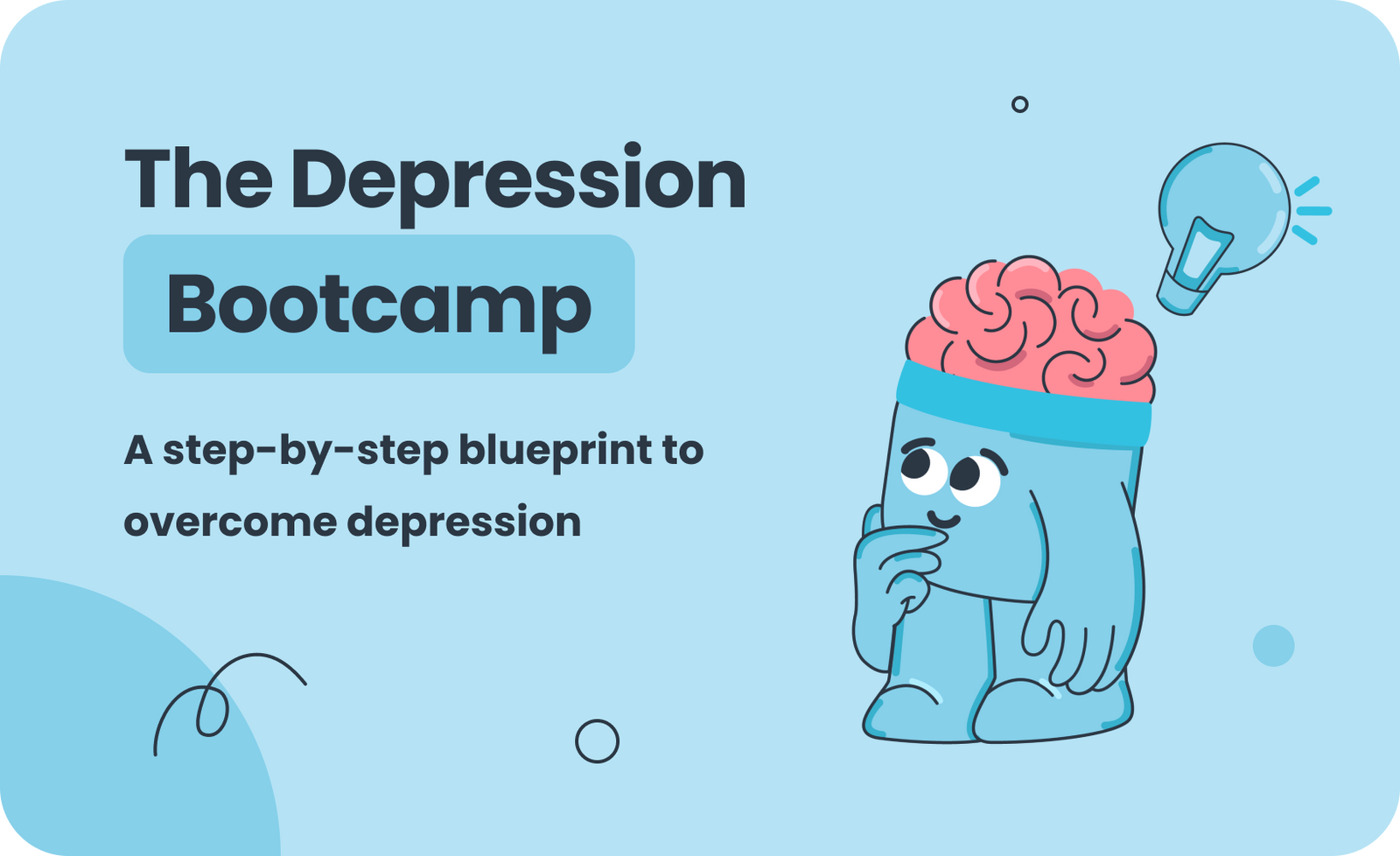
In this Bootcamp, you will learn:
- Why you keep relapsing back into depression;
- Why anti-depressant medication - although in many cases helpful - isn't by itself enough to overcome depression;
- The 5 aspects of depression that your treatment plan needs to address;
- The need to learn and implement "survival strategies" (to give you quick, short-term relief from depression when your symptoms are at their worst);
- The need to learn and implement "coping strategies" (to help you function on a day-to-day basis and prevent you from constantly becoming burned out, exhausted and having your depression deteriorate);
- The need to learn and implement "healing strategies" (so that you can address the underlying causes of your depression, and therefore in time, actually get better and overcome your depression).
As a result of learning all of the above, by the time you've completed this Bootcamp, you'll have a clear, step-by-step blueprint you can follow to overcome depression.
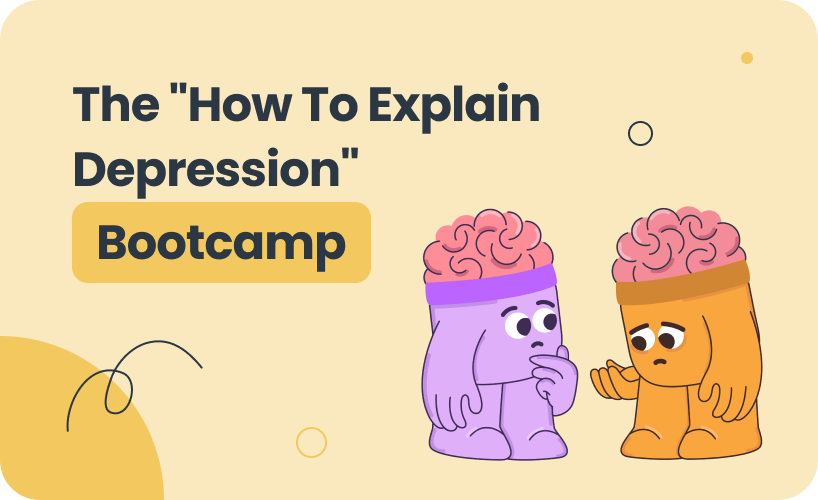
Under any circumstances, depression is a very, very difficult illness to deal with. However, what makes it all the more debilitating is that so many people don’t understand it properly, and therefore instead of giving you the care, empathy and support you need, they're liable to instead say something annoying, insensitive, dismissive, judgmental or even downright rude - such as, for example:
- “It's all in your head."
- "Cheer up."
- “Just get over it.”
- “You have a mental illness? Then you must be crazy!”
- “I know how you feel” (when that person has never had depression before).
- “We all have bad days now and then.”
- “You can’t be depressed – there are so many people in the world who are worse off than you!”
- “You’re just being negative.”
- “You’re just looking for attention.”
- “Look how lucky you are.”
- “Just do XYZ – then you’ll be fine!"
- “Stop feeling sorry for yourself.”
And, for this reason, having depression can sadly result in you feeling isolated, alone, and completely and utterly misunderstood.
So, in order to make it significantly easier for you to explain your depression to your loved ones – in such a way that they can properly understand this illness and then support you through it – we created The “How To Explain Depression” Bootcamp.
In particular, this Bootcamp will include, among other things:
- Your very own “depression letter” - since depression can be extremely difficult to put into words, we’ve done it for you, by drafting a letter on your behalf that explains to your loved ones exactly what depression feels like, as well as some of the ways they can support you through it.
- Example responses to the most common annoying, dismissive, judgmental comments people often make when you tell them you have depression – in order to help them better understand what you’re going through, and therefore be in a better position to be able to support you.
- Cognitive behavioural therapy-based strategies to help you conquer any fears, worries or other reservations you may have regarding opening up about your depression – such as the worry that by telling your loved ones about your depression, that you’ll be bringing them down and/or becoming a "burden" to them; shame because you feel that having depression means that you're "weak", and/or because you feel you have a “good life” and therefore no reason to be depressed; and not wanting to appear vulnerable – for example, because you’re a mom or dad and for this reason, you expect yourself to be the “strong one”.
- And more!
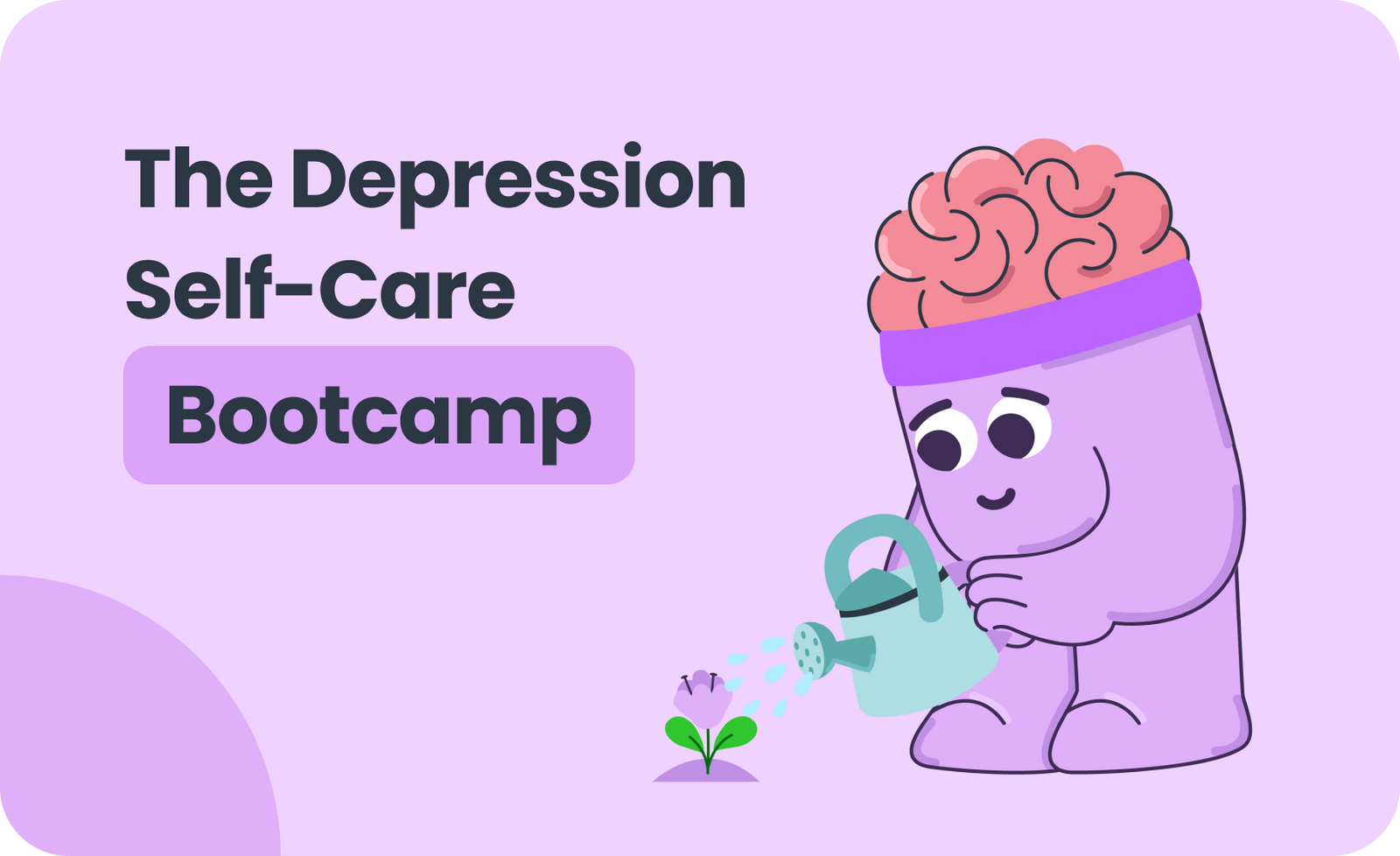
In this Bootcamp, you'll learn a wide variety of strategies to:
- Practice "mental self-care" - in order to help you separate yourself from negative thoughts; think more positively; become "unstuck" from something that you may be ruminating about; and stimulate your mind in an enjoyable way.
- Practice "emotional self-care" - in order to help you get some respite from the painful emotions you're feeling, give your mood a boost, and prevent yourself from getting burnt out and/or from your depression deteriorating.
- Practice "physical self-care" - in order to help you, among other things, feel more energetic, and take care of your physical health as well.
- Practice "social self-care" - in order to help you have positive interactions with the people around you.
- Practice "spiritual self-care" - in order to contribute to you feeling as if you have a purpose in the world and that your life has meaning.
- Practice "practical self-care" - in order to help you feel comfortable, safe, cared for and in control of your life.
As a result of learning all of the above, by the time you've completed this Bootcamp, you'll have a clear, comprehensive self-care plan you can follow moving forwards.
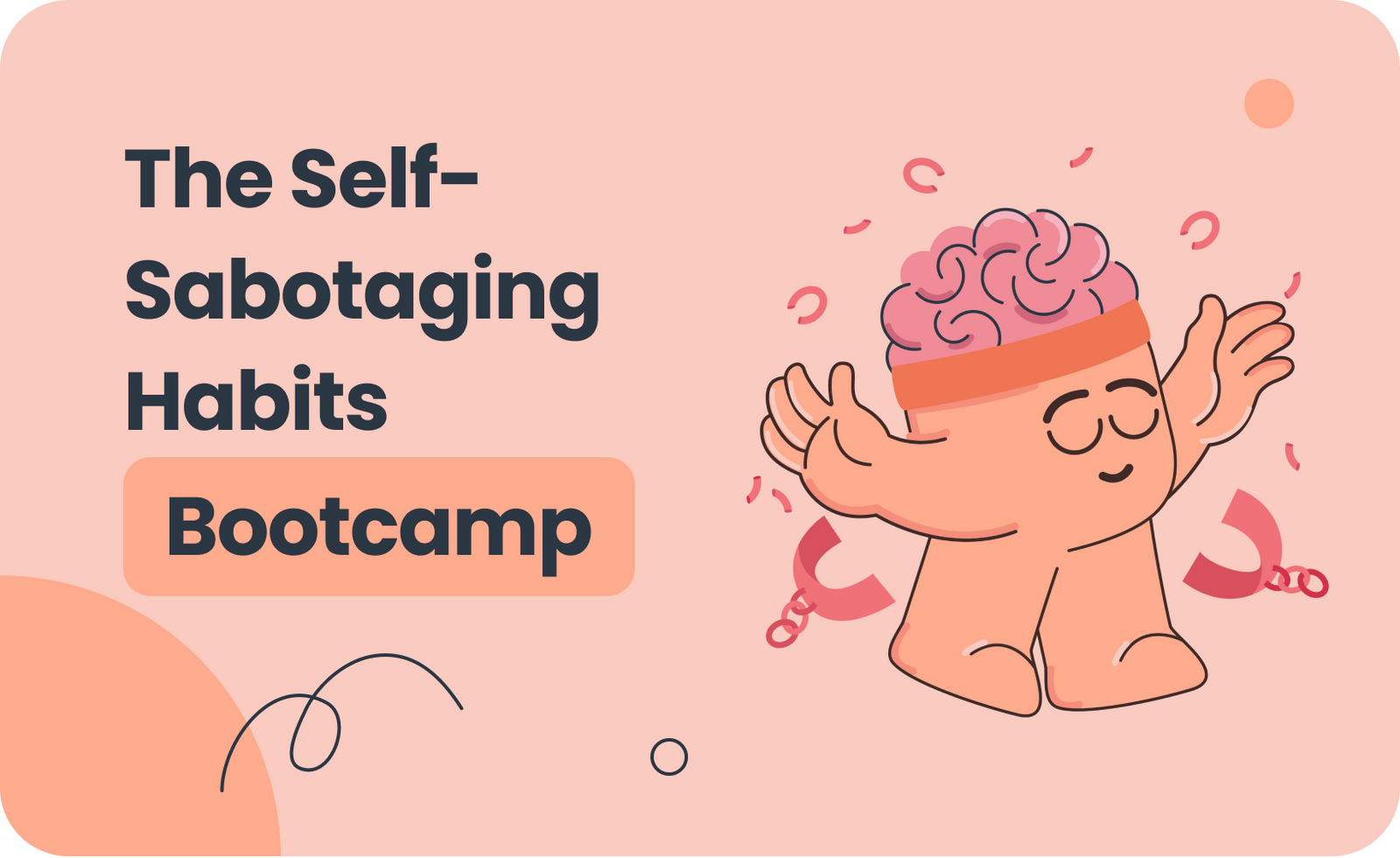
This Bootcamp focuses on comfort / binge eating, self-harm and over-spending on "retail therapy" in particular, and will teach you:
- What the “self-sabotaging habit loop” is, and why it's so difficult to break out of when you're in a depressive episode (even if you’re highly motivated to do so);
- How to break out of the "self-sabotaging habit loop" using a variety of different cognitive behavioural therapy strategies;
- What to do if you relapse back into your self-sabotaging habit(s).
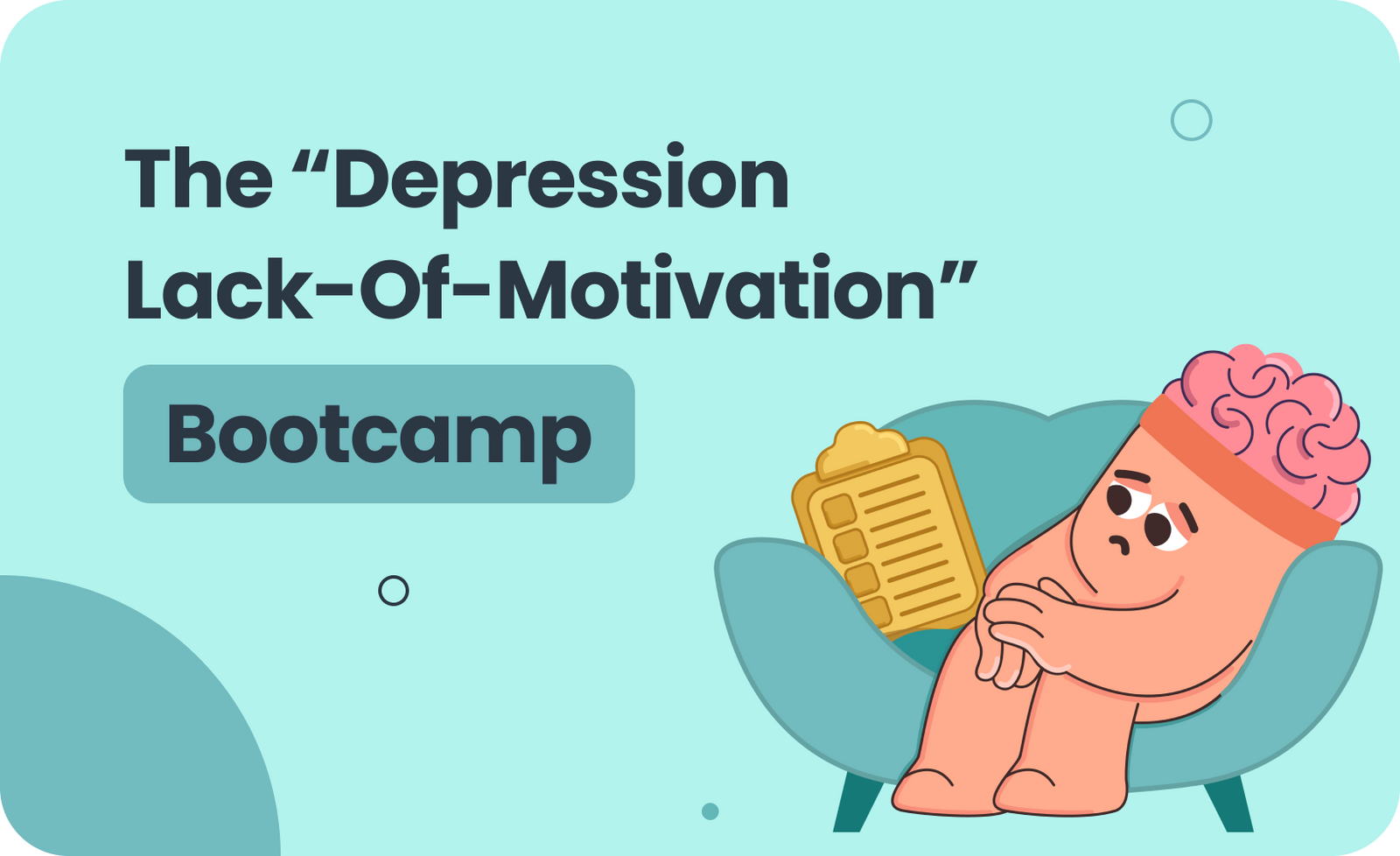
Like we've mentioned, lack of motivation is one of the biggest obstacles that can hold people back from overcoming depression.
Of course, this is very understandable – since when you’re deep in a depressive episode and have lost interest in everything that you would usually enjoy, are feeling completely exhausted, and are devoid of hope that life will ever get better, it can be extremely difficult to find the motivation to even get out of bed. And, if this is the case, then something to help you overcome depression which requires significantly more capacity – like going to therapy, for example – will almost certainly feel like much too much.
Consequently, we’ve created this cognitive behavioural therapy-based Bootcamp in order to help you overcome "depression lack-of-motivation" - which can lead to the following benefits:
- Firstly, it can result in you feeling more energetic and inspired, and therefore better able to function and complete the tasks that you want to complete (such as doing your chores, taking care of your personal hygiene, ticking items off your to-do list and working, for example).
- Secondly, thanks to feeling more energetic, inspired and better about yourself and your circumstances as a result of completing the tasks that you want to complete, your depressive episodes will likely tend to be less intense and last for shorter intervals of time (since feeling more energetic, inspired and better about yourself supports you breaking out of a depressive episode – whereas lack of motivation, lack of energy and lack of action deepens depressive episodes and makes them harder and harder to break out of).
- Furthermore, as a result of feeling more motivated on the whole and having a higher capacity to function due to spending less time than you otherwise would trapped deep in a depressive episode, you’ll be in a much better position to take the steps that you need to take in order to overcome depression.
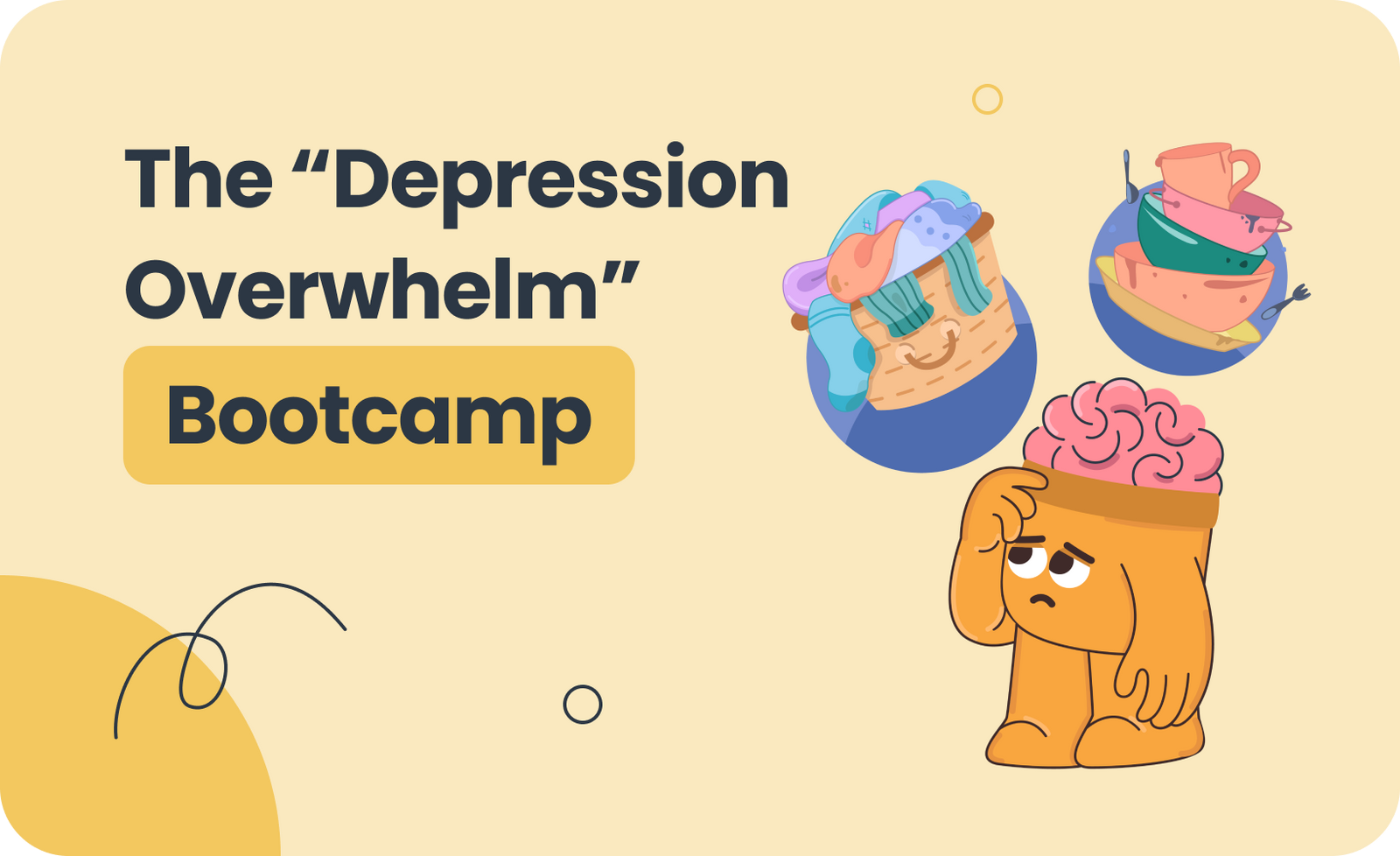
In this Bootcamp, you will learn:
- The specific behaviours that commonly fuel "depression overwhelm" (which right now, you may unknowingly be engaging in);
- A wide variety of cognitive behavioural therapy-based strategies to help you overcome "depression overwhelm" - each of which will make it much easier for you to function, attend to your to-do list and get things done.
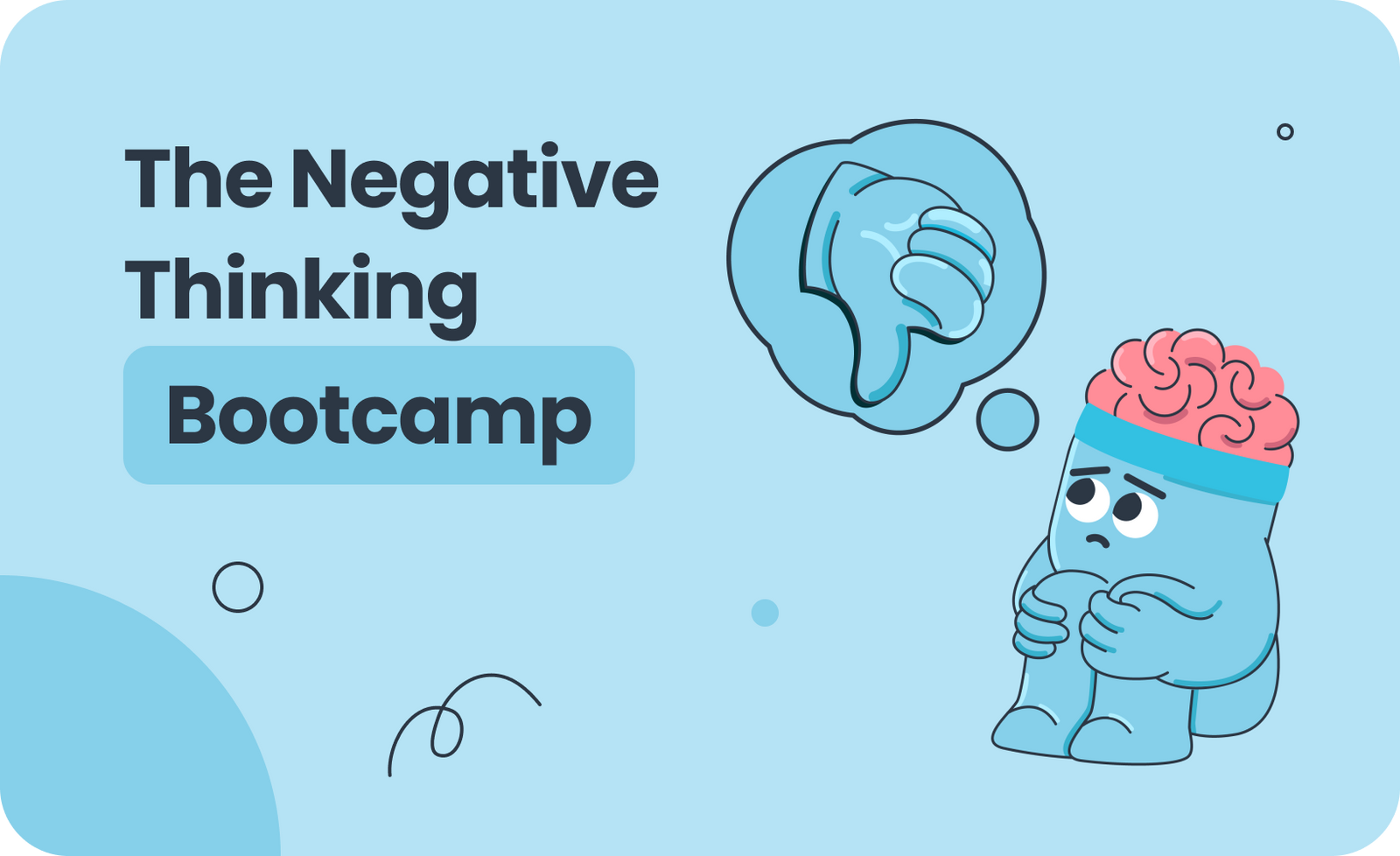
In this Bootcamp, you will learn:
- A wide variety of cognitive behavioural therapy strategies to overcome your automatic negative thoughts that get triggered in day-to-day situations and fuel your depression (such as, for example, "I'm a failure" in response to not achieving one of your goals; "I'm a burden" in response to needing support from a loved one; or "I'm not good enough" in response to negatively comparing yourself to other people).
- Additionally, in this Bootcamp, we'll also guide you through several cognitive behavioural therapy-based exercises to help you overcome any deep-seated, negative core beliefs you hold about yourself in response to one or more difficult, painful past experiences (for example, believing "I'm unlovable" in response to being neglected as a child; believing "I'm a loser" in response to being bullied in school; or believing "I'm worthless" in response to being mentally abused). Even if you've held onto negative core beliefs such as these for years or even decades, the exercises we'll guide you through have been shown to significantly help.
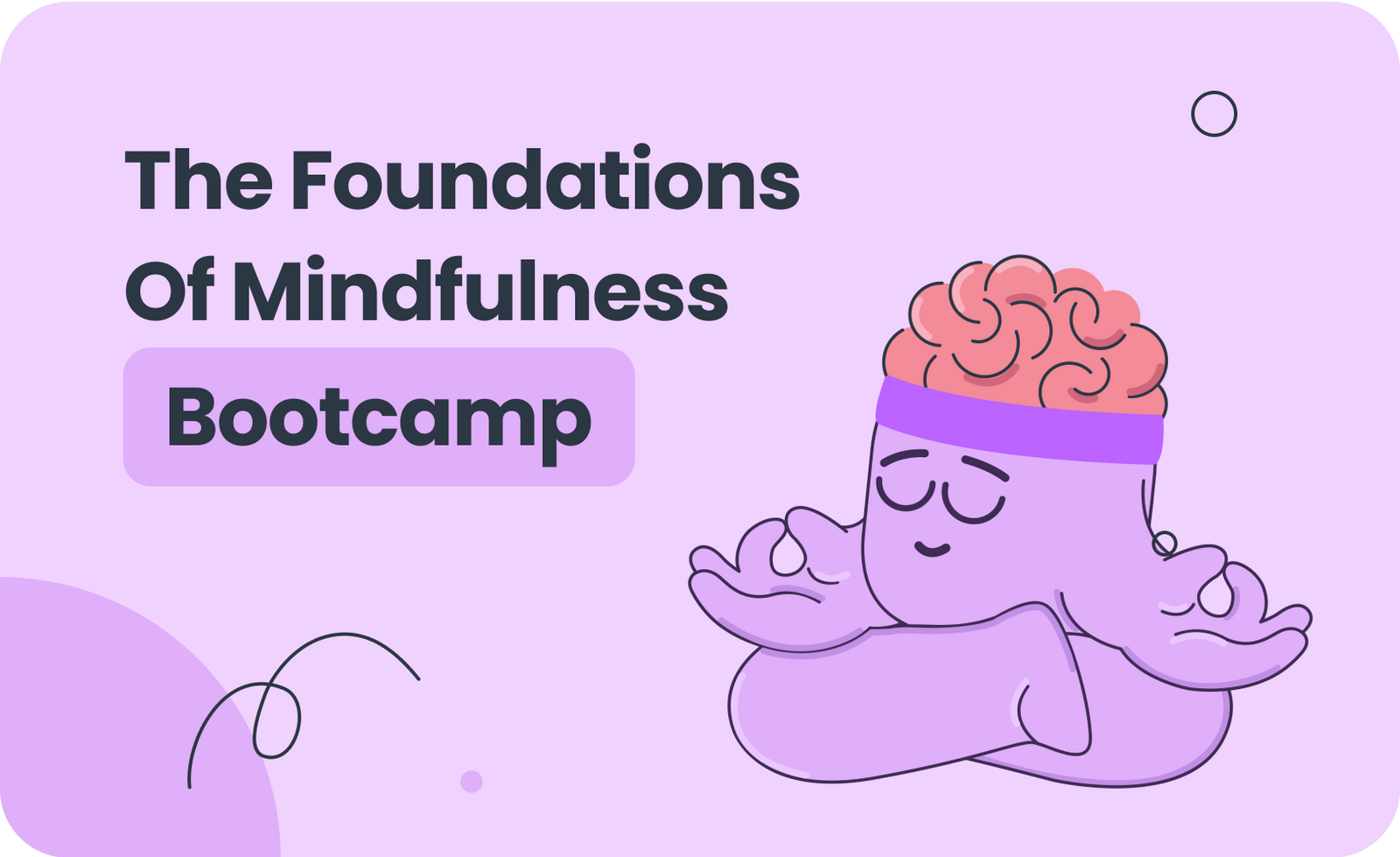
Mindfulness has been proven to have a wealth of benefits, including:
- Reduced symptoms of depression, and reduced probability of having another major depressive episode;
- Reduced symptoms of anxiety;
- Reduced symptoms of post-traumatic stress disorder (PTSD);
- Improved ability to manage symptoms of bipolar disorder (including helping to prevent a manic or hypomanic episode from taking place);
- Decreased likelihood of resorting to binge eating and other self-sabotaging behaviours;
- Improved quality of sleep;
- Higher relationship satisfaction;
- Reduced severity of chronic pain;
- Improved ability to cope with difficult and challenging situations and experiences;
- More peace, contentment and enjoyment in everyday life.
Consequently, we created this Bootcamp, in order to share with you:
- Firstly, what mindfulness is, and the reasons why it can be so beneficial – particularly if you’re fighting depression, anxiety, PTSD and/or another mental health illness or issue.
- Secondly, we’ll break down some of the most common myths surrounding mindfulness – which, unless deconstructed, can hold you back from ever practicing mindfulness.
- Lastly, we’ll share with you a variety of mindfulness exercises in an easy-to-understand, step-by-step way – so that you can start implementing them right away, and over time, start reaping some of mindfulness’s many benefits.
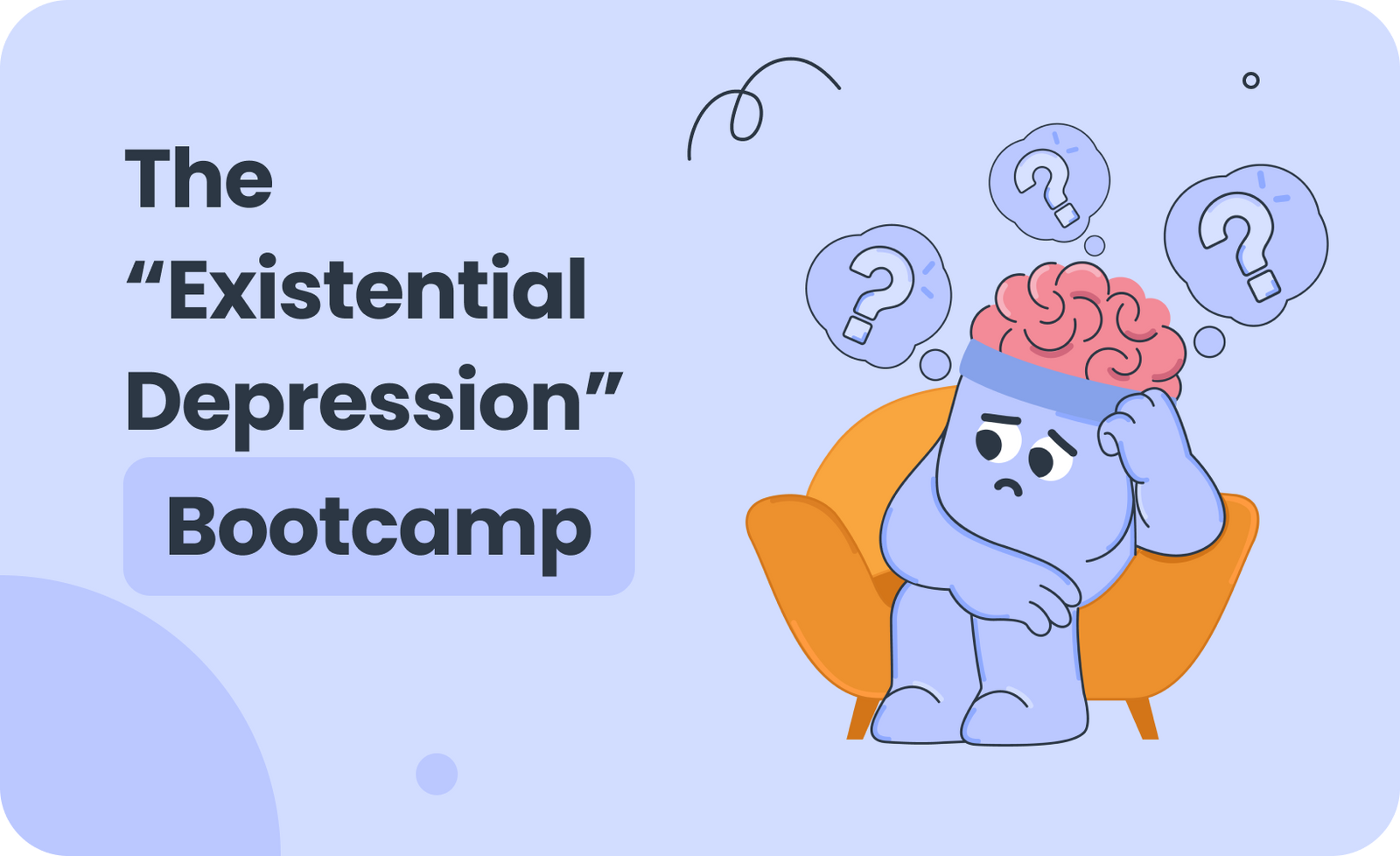
According to members of The Depression Project's community, “existential depression” can involve, among other things, intrusive, troubling and unsettling thoughts, such as:
- “What is the purpose of life?”
- “After what I've lost, there’s no point being alive anymore.”
- “I can’t stop thinking about death – about what comes after it and what it’s going to feel like.”
- “Am I living the ‘right’ way?”
- “Why is there so much suffering in the world?”
- “Do I really want to keep living in this cruel, unfair world?”
- “What’s the point in anything if we’re all going to die?”
- “What if what I’m longing for never ends up happening? What will the point in anything be then?”
- “Why am I being put through so much pain?”
- “Surely there's more to life that this?”
And, as a result of grappling with these kind of intrusive, troubling and unsettling thoughts, it’s common for people with “existential depression” to feel, among other emotions:
- Overwhelmed;
- Unmotivated;
- Miserable and full of despair;
- Hopeless.
Consequently, we put together this Bootcamp, in order to help you cope with and in time overcome “existential depression”, so that you can:
- Feel much more in control of your intrusive existential thoughts;
- Feel less overwhelmed, unmotivated, miserable and hopeless;
- Find more meaning, purpose and fulfilment in life.
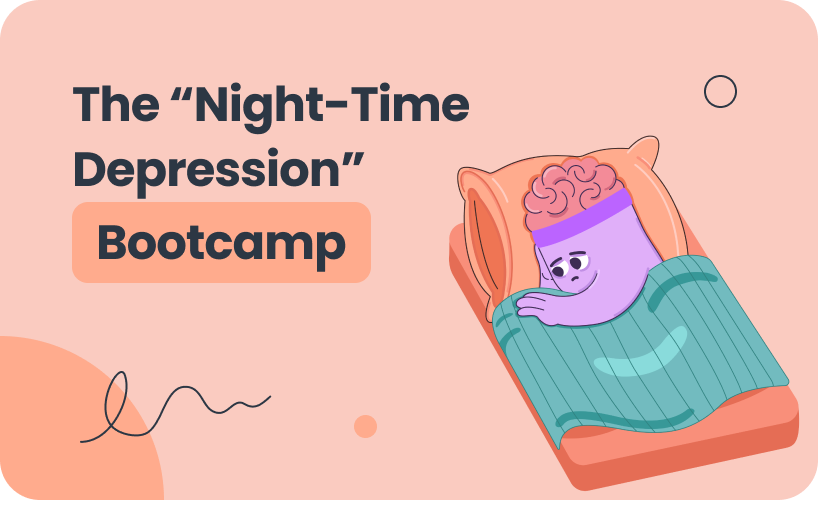
In this Bootcamp, you will learn:
- Why it's so common to be consumed with intrusive negative thoughts at night time in particular when you're trying to fall asleep;
- Strategies you can implement in order to help prevent yourself from becoming consumed with intrusive negative thoughts at night time - and as a result, get a much better night's sleep;
- Strategies you can implement to improve your “sleep hygiene” in order to make it easier for you to fall asleep;
- Strategies you can implement to cope with feelings of loneliness that can often surface at night time in particular.
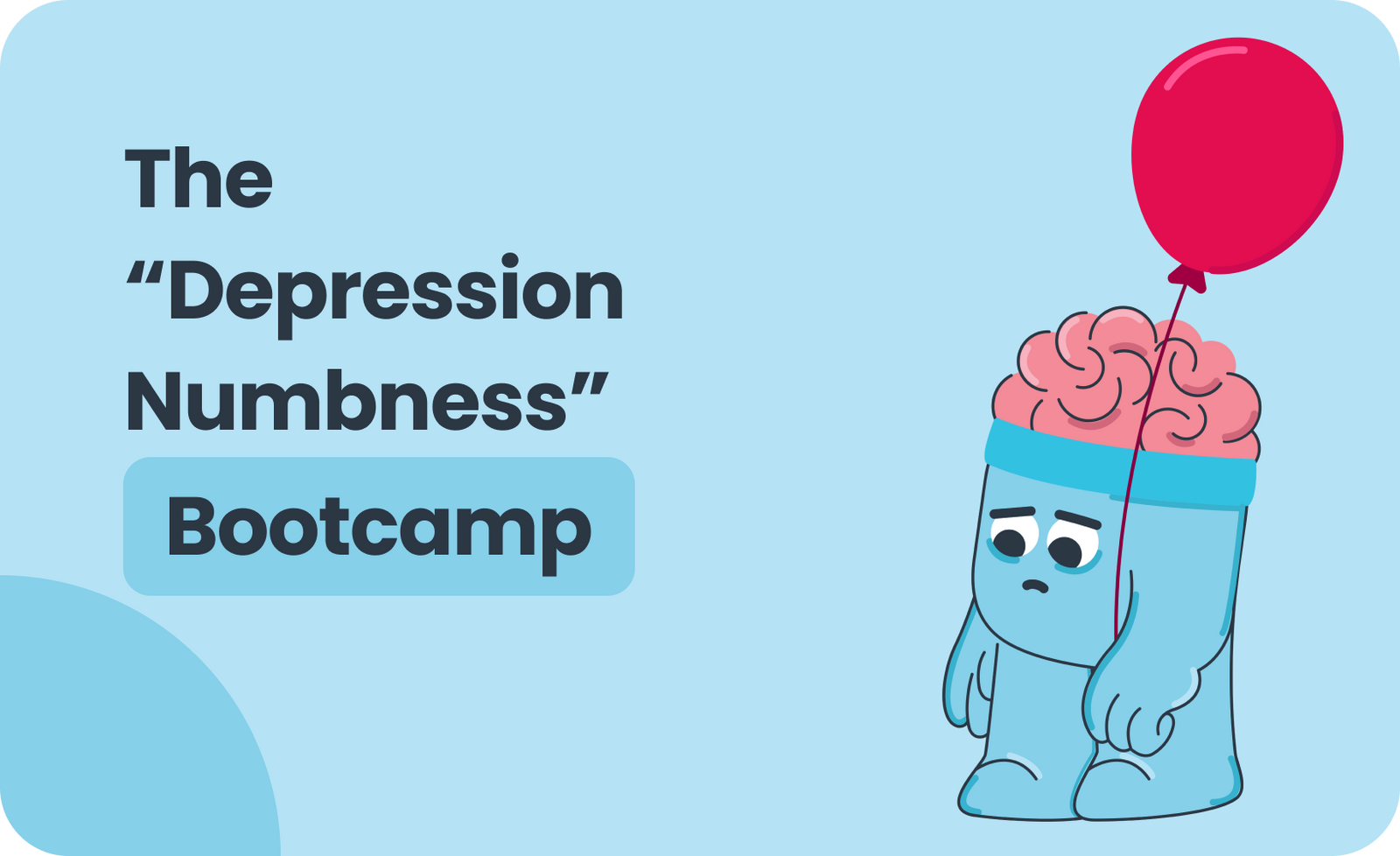
After completing this Bootcamp, you will:
- Understand “depression numbness” – including the reasons and the science behind why you may be experiencing it in the first place;
- You'll also know a wide variety of strategies to break out of “depression numbness” - so that you can get back to experiencing joy and pleasure from the things that you usually like doing, be able to think clearer and function more effectively, and be in a better position to take the necessary steps to treat your depression.
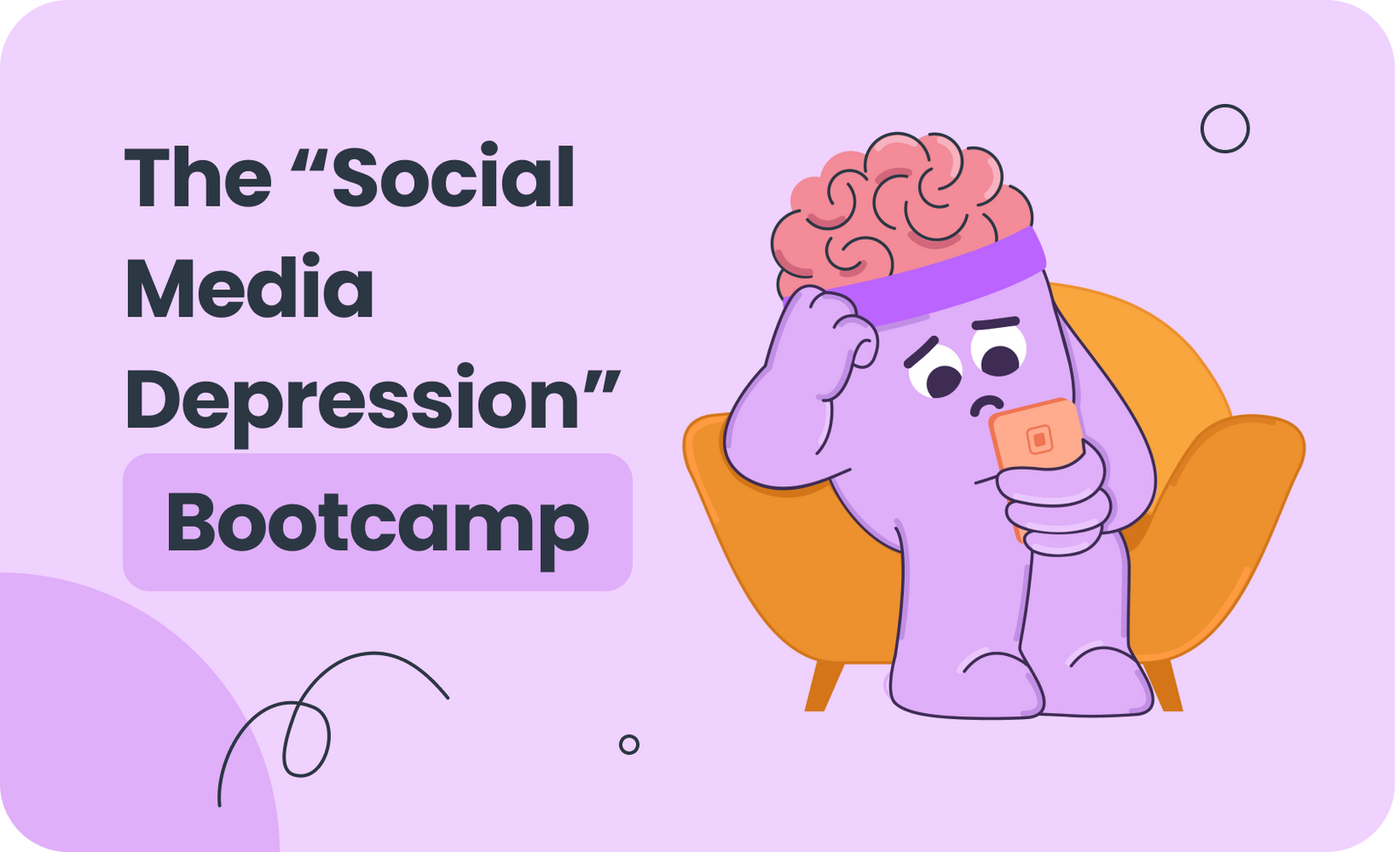
According to members of The Depression Project's community, social media can be a common trigger of depression, because:
- It can lead you to negatively compare yourself to others – which can fuel negative thoughts like “I’m a failure”, and result in you feeling jealous, worthless and lacking in self-esteem.
- An overabundance of “bad news” can fuel negative thoughts like “the world is such a terrible place”, and cause you to feel overwhelmed and hopeless as a result.
- Nasty, judgmental, hateful comments can fuel negative thoughts like “people are such mean, ignorant, abusive jerks”, and leave you feeling angry, frustrated, dejected and/or disillusioned with humanity.
- When other people post about their social outings or the fun activities they’re doing, it may cause you to feel bad that you’re not a part of it.
- Social media can result in you struggling to enjoy the present moment – which can happen when, for example, you’re getting distracted constantly checking social media.
- Constantly checking social media before bed can also make it much more difficult to wind down and fall asleep.
Consequently, we created this Bootcamp, in order to:
- Help you cope with and overcome the negative thoughts that are triggered by social media;
- Help you cope with and overcome feelings of misery, jealousy and worthlessness that can arise from negatively comparing yourself to other people on social media;
- Help you change the way you use social media – so that instead of triggering your depression by exposing you to an overabundance of bad news, by distracting you, by disrupting your sleep, and/or through all the other ways that we have mentioned, it can instead enhance your life in a positive way.
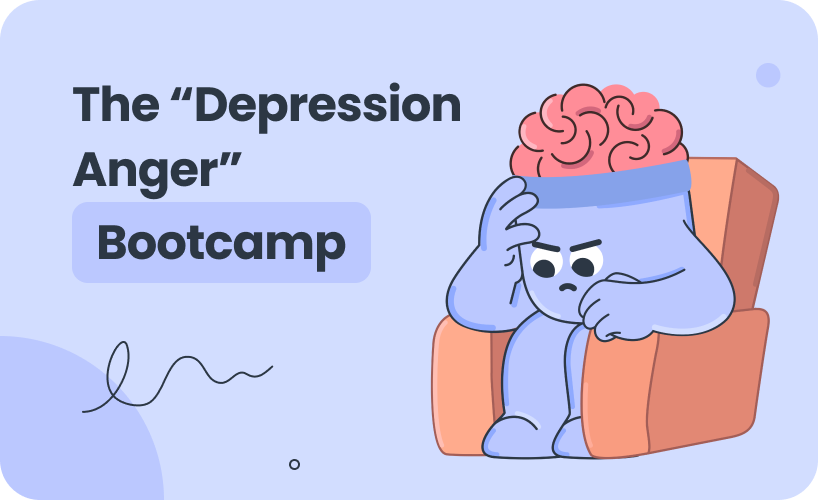
After completing this Bootcamp, you will:
- Understand the ways that “depression anger” may be fuelling and compounding your depression;
- Know a wide variety of CBT-based strategies to help you manage and defuse your “depression anger” in the “heat of the moment” – so that you don’t act in ways that you’ll later regret, and so that you can prevent it from fuelling and compounding your depression;
- Know a wide variety of CBT-based strategies to help you take steps to feel less “depression angry” in the first place, and instead feel more calm, relaxed and at peace on the whole.
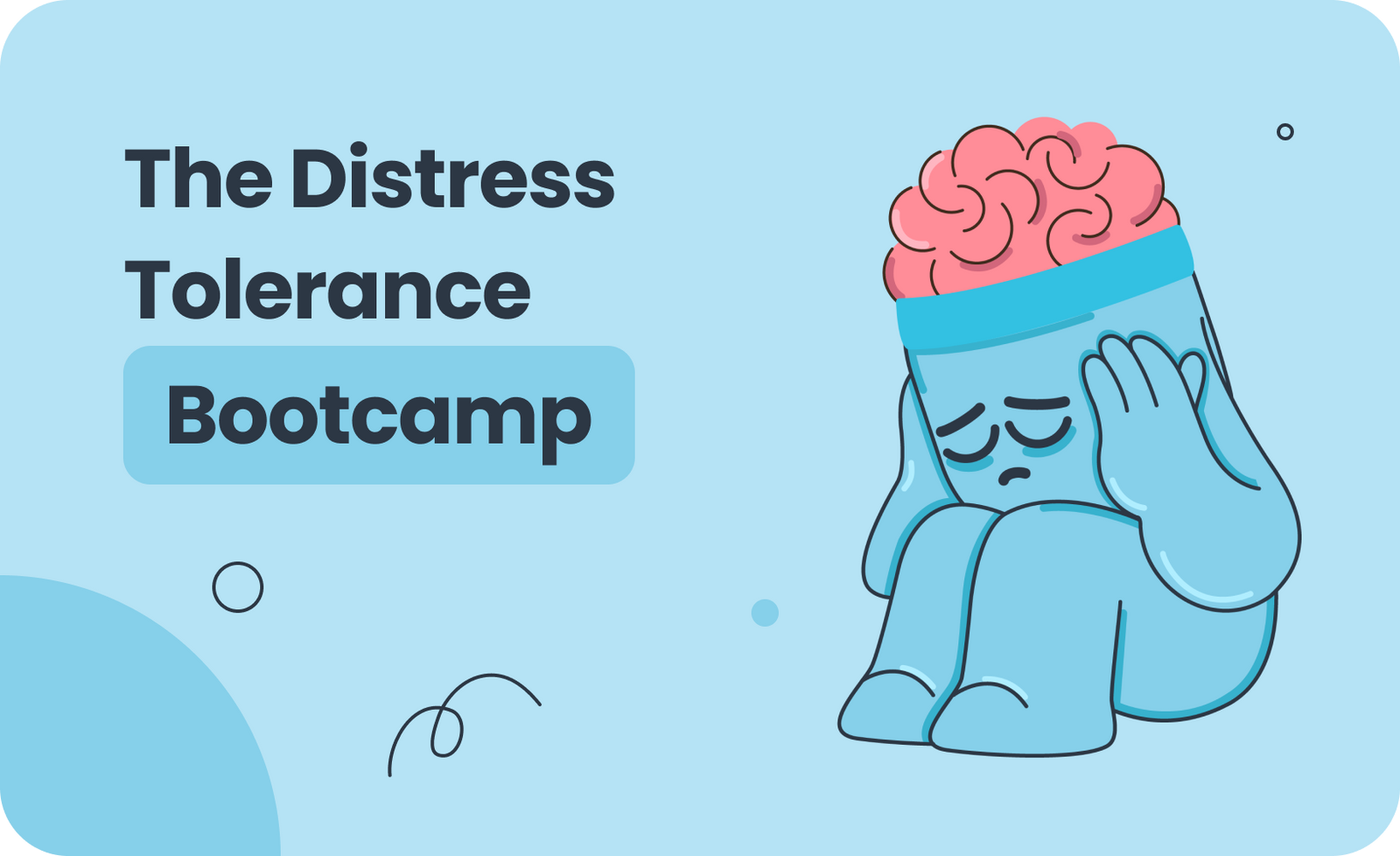
When people are in deep emotional distress, it's common for them to try to deal with it in unhealthy ways – such as by, for example:
- Engaging in substance abuse;
- Binge eating;
- Over-spending on "retail therapy";
- Self-harming;
- Taking their distressing emotions out on others.
However, while unhealthy coping methods such as these may give you some temporary relief from distress in the short-term, they ultimately end up causing you even more pain and suffering in the long-term.
Consequently, it’s extremely beneficial to know some distress tolerance skills - which are one of the four core skill components of dialectical behaviour therapy (a specialised form of CBT).
In particular, distress tolerance skills can help you to cope with distress in a healthy way that not only gives you short-term relief, but that also doesn’t compound your distress in the long-term. And, with this objective in mind, in this Bootcamp:
- You’ll learn 18 healthy strategies that can help you tolerate distress in a wide variety of situations.
- Then, after sharing all of these healthy strategies with you, we’ll help you to develop your own personalised distress tolerance plan – for you to implement moving forwards any time you feel distressed.
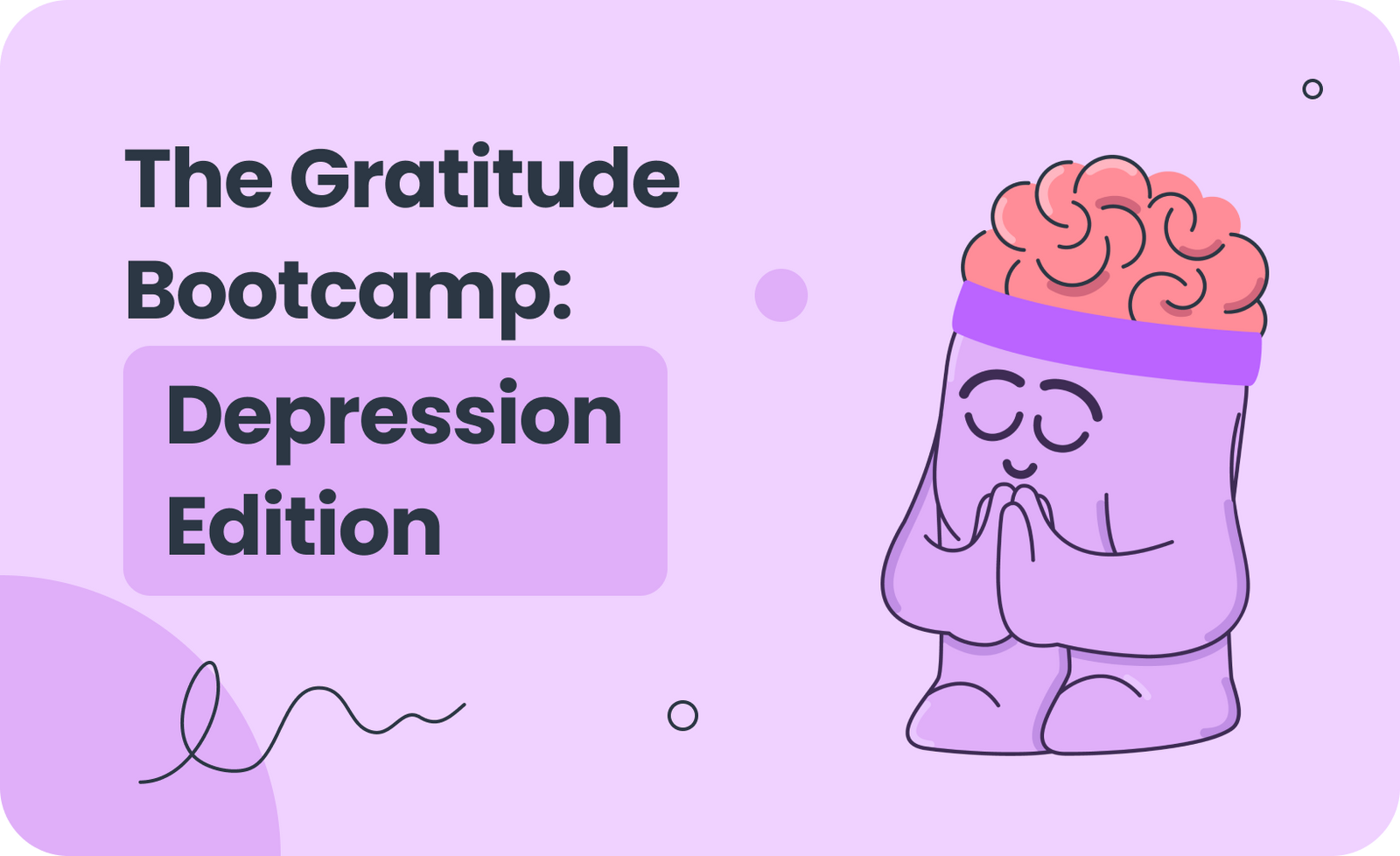
Practicing gratitude has been proven to be rich with benefits, including, among other things:
- Reduced levels of stress;
- Higher self-esteem;
- Higher levels of optimism;
- Improved peace of mind;
- A willingness to be more helpful;
- Increased ability to be patient;
- Strengthened relationships;
- Higher levels of emotional resiliency;
- Decreased likelihood of experiencing burnout;
- Reduced rumination;
- Improved quality of sleep;
- Improved physical health;
Reductions in depression and anxiety; - Improved life satisfaction.
However, despite its immense benefits, as you may be able to relate to, practicing gratitude can be very challenging when you're fighting depression. And, for this reason, we've put together this Bootcamp, in order to teach you how to:
- Effectively practice gratitude when the symptoms of your depression are severely intense;
- Effectively practice gratitude when the symptoms of your depression are moderately intense;
- Effectively practice gratitude when the symptoms of your depression are mildly intense.
In Addition To All Of The Above Bootcamps, You'll Also Get Access To Several Interviews With Therapists As Well!
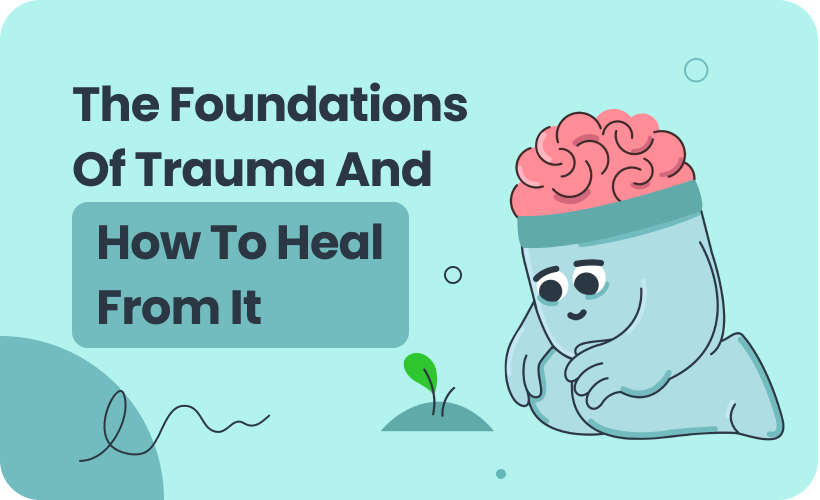
In this in-depth therapist interview, Somatic Experiencing Practitioner & trauma expert Sarah Baldwin will share with you:
- How trauma is NOT an event - but rather, how an event overwhelms our body's capacity to process what is happening.
- What some of the common - but not-so-obvious - experiences that can lead to trauma are.
- Why the same event(s) can result in trauma for one person but not another.
- How trauma gets "stuck and stored" in your body - and why having trauma does NOT mean that you are "broken" or that there is "something wrong with you".
- How it really is possible to let go of trauma and heal from it.
- Why you may not be able to remember some or all of a traumatic event; why you don't actually need to in order to heal from trauma; and why your memories may start to come back as you begin to heal from trauma.
- How at its core, healing from trauma involves showing your body that what happened is over, and that now, you are safe.
- How to regulate your nervous system in order to feel safe.
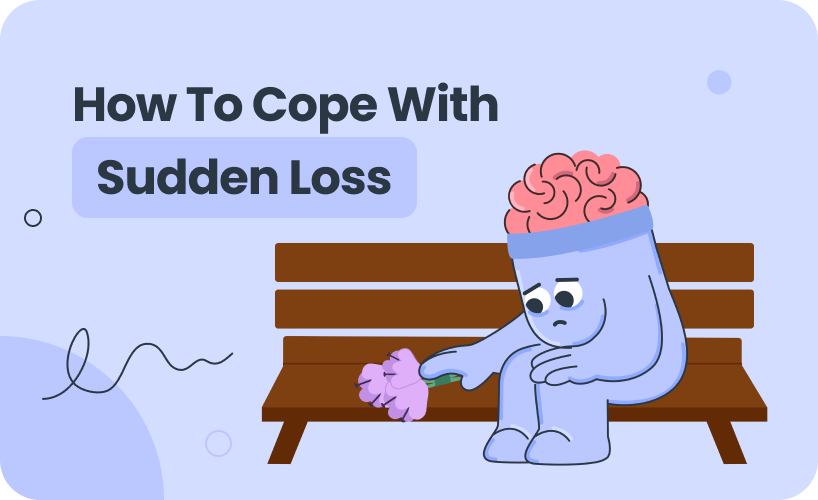
In this two-part interview series, psychologist, university lecturer and grief & loss expert Judith Murray will share with you:
- What some of the most common forms of "sudden loss" are, and the different ways that sudden loss may be impacting you;
- The steps you need to follow and the strategies you need to implement in order to cope with sudden loss and ultimately heal from it.
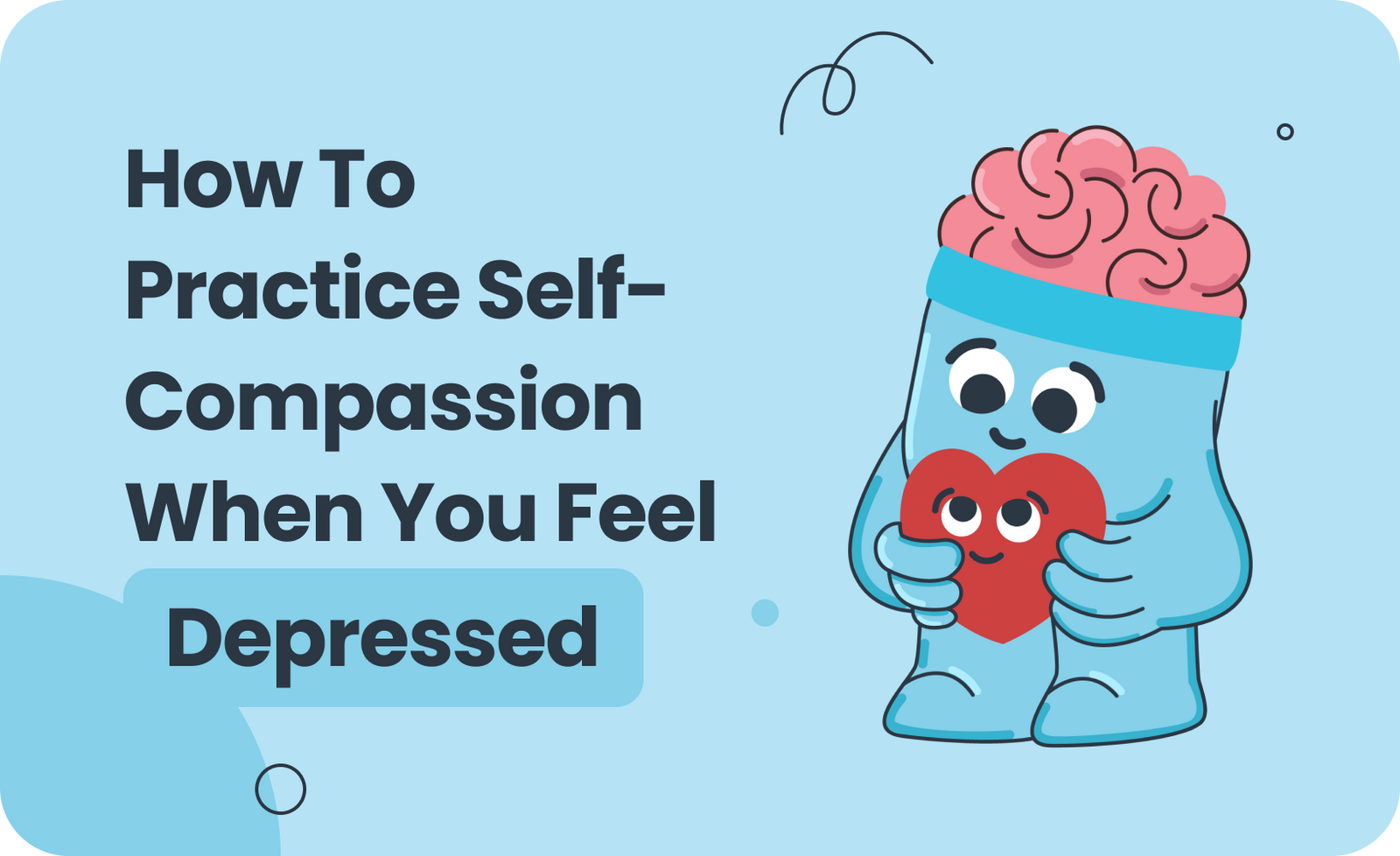
In this course, professional counsellor Sana Powell will share with you:
- How to practice self-compassion by acknowledging how you feel physically;
- How to practice self-compassion by no longer judging yourself for how you feel mentally;
- How to practice self-compassion by maintaining social support;
- How to practice self-compassion by forgiving yourself;
- How to practice self-compassion by expressing gratitude.
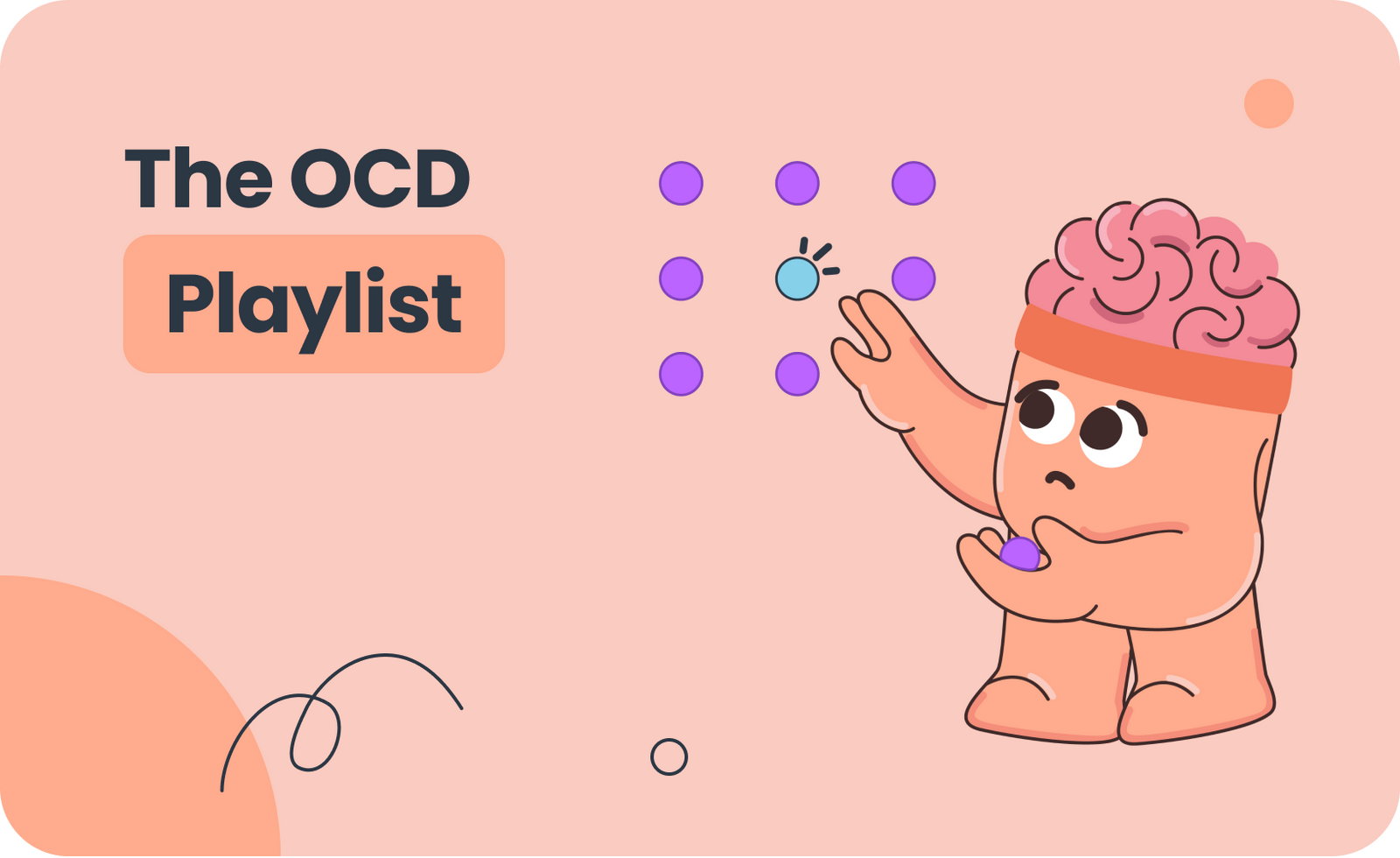
In this six-part OCD interview, professional counsellor & OCD expert Jenna Overbaugh will talk in detail about:
- Video #1: Understanding OCD
- Video #2: How To Overcome OCD
- Video #3: Relationship OCD
- Video #4: How To Support Someone With OCD
- Video #5: Suicidal OCD
- Video #6: Contamination OCD
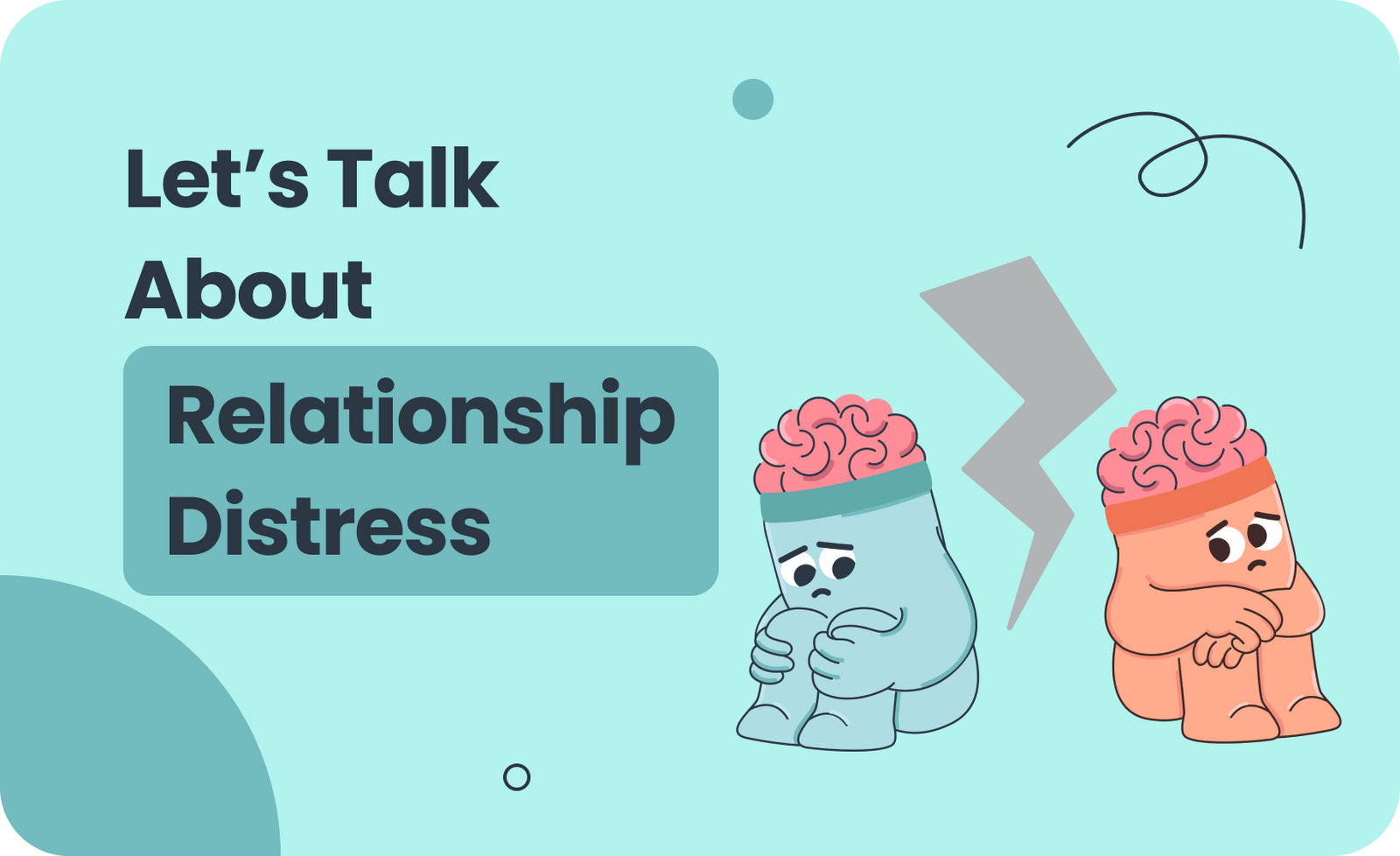
In this interview, clinical psychologist and couples therapist Dr Jenny Fitzgerald will share with you:
- What relationship distress can look like;
- What some of the common causes of relationship distress are;
- What can help prevent relationship distress from developing.























